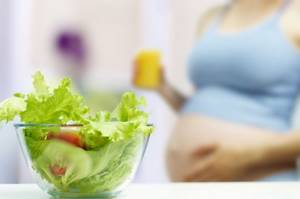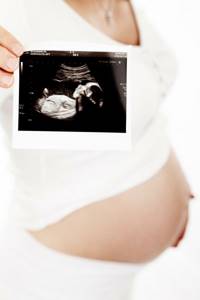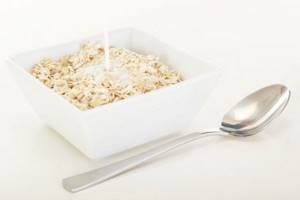If fasting days are indicated for you during pregnancy, make them as safe as possible. Find out what you can eat and how to make deloading enjoyable. Achieve the desired result without harm to yourself and your baby!
Author: Kristina Lobanovskaya, doctor, practicing nutritionist Article updated: 11/10/2020
Ask a Question
Nutritionists do not recommend expectant mothers to overeat. This can lead to undesirable consequences: the figure will not only become overweight and blurry, overeating can affect the birth process and complicate it.
In order for the unborn child and his mother to feel comfortable and receive the full amount of vitamins, it is necessary to balance the diet and provide a complete diet for the pregnant woman. It is considered normal when a woman gains up to 12 kg of weight during pregnancy. When weight increases unevenly and complications appear, which will be discussed below, it becomes necessary to carry out fasting days during pregnancy. The decision to reduce excess weight of a pregnant woman is made by the doctor. If a mother decides to arrange a diet day for herself, she should definitely consult with a doctor about the possibility of carrying it out.
Choice between diet and fasting day
A diet is a special diet for a pregnant woman, used when a pathology occurs, such as obesity, diabetes, allergies, etc. When following a diet, certain rules are followed and the consumption of certain foods is limited. Many people use diets in everyday life: to lose weight, for health reasons. They are observed for a certain period, sometimes for a very long time.
If a pregnant woman has chronic diseases, for example, diabetes mellitus or kidney or stomach diseases, then there is a need to prescribe nutritional therapy. Any diet is agreed upon with a leading gynecologist. During pregnancy, it is not recommended to abstain from eating if the body requires it. This is harmful and dangerous for the unborn newborn. If you suppress your appetite and desire to eat certain foods, this can lead to what is called overeating. To prevent this from happening and if there is a need to reduce calories or the amount of food consumed, doctors recommend having a day when you eat only light food.
Carrying out a treatment day, provided it is carried out correctly, will allow you to receive all the nutrients necessary for the expectant mother and her child. In addition, as a result of unloading, the work of all organs is facilitated.
During such a day, the gastrointestinal tract rests, the intestines are cleansed, the body is freed from harmful metabolic products, restriction activity is regulated, metabolism is accelerated, and excess fluid is removed. As a rule, fasting days for a pregnant woman are monitored by a doctor so that the lack of any products does not lead to pathology of the fetus. Be that as it may, such a day is a kind of shock for the body. There must be compelling reasons for his appointment. On this day, food should be quite filling, but with less calories.
There are positive and negative aspects to fasting days. The advantages include :
- getting rid of waste and toxins;
- getting additional vitamins;
- removal of excess liquid;
- weight loss;
- does not harm health;
- normalization of blood pressure;
- strengthening the cardiovascular system;
- reduction of swelling.
There are no downsides to fasting days ; they have an effective and beneficial effect on the body. But there are contraindications . These include:
- low weight before pregnancy;
- existing chronic diseases that do not allow you to eat low-calorie foods;
- diseases of the stomach, heart, etc.
Whether it is possible for pregnant women to do fasting days is decided by the doctor based on the tests of the pregnant woman. If required, they additionally consult with specialized specialists: endocrinologists, cardiologists, therapists.
The harm and benefits of fasting days during pregnancy
Fasting days during pregnancy, if organized correctly, facilitate the functioning of many organs. First of all, they help restore the digestive organs. The intestines are cleansed, toxins and waste are removed, enzymatic reactions are activated, and the metabolic rate increases. Due to the fact that excess fluid leaves the body, kidney function is restored and swelling is noticeably reduced.

Activation of metabolism leads to better breakdown of subcutaneous fat and more active protein synthesis. As a result of restoration processes in the body and the removal of toxins, the condition of the skin, hair and nails improves.
To ensure that “unloading” for pregnant women does not cause harm, caloric restriction and food selection should be done only on the recommendation of a doctor. If you do it more than once a week, it will lead to many problems. The child will not receive enough important substances - vitamins, microelements, proteins, carbohydrates, necessary for normal development.
You should carefully select a menu for fasting days for pregnant women, as some foods can increase or decrease blood pressure and aggravate chronic diseases. But fasting days, even if all the rules and recommendations are followed, are a kind of shake-up for the body. Changing the usual diet leads to changes in the functioning of many organs, so it is impossible to limit the volume and variety of foods in case of some diseases of the kidneys, liver, stomach and intestines. Fasting days during pregnancy in the second trimester can be carried out only in extreme cases and strictly as prescribed by the doctor.
Indications
Significant weight gain during pregnancy is not always the result of increased nutrition or consumption of super-calorie foods. This may be explained by the characteristics of the expectant mother’s body and her lifestyle.
But if the following symptoms occur:
- swelling of the legs;
- dyspnea;
- blood pressure increases;
- heart function is disrupted;
- problems arise with the functioning of internal organs (kidneys, liver),
then the appointment of fasting days will be justified and necessary. The presence of these signs signals changes in the condition of the pregnant woman. And this, in turn, can affect the health and development of the unborn child.
The need for fasting days arises in the presence of such pathologies
- Obesity of any degree and the risk of diabetes. An increase in sugar or glucose levels causes damage to the walls of blood vessels in the fetus, impairing blood flow. In the future, this threatens the occurrence of complications in the child, leads to injuries during childbirth, and increases the risk of diabetes in the child.
- Preeclampsia or preeclampsia is expressed in increased blood pressure, edema and protein in the urine. These pathologies can cause premature birth, and there is a danger of oxygen starvation of the fetus.
- Rapid weight gain during pregnancy is a good reason for a fasting day.
Fasting days for pregnant women in the 3rd trimester - menu, food table
Fasting days for pregnant women in the 3rd trimester have a positive effect on the body of expectant mothers. They tone him up and prepare him for childbirth. The most useful are fasting days, the menu of which includes:
- cottage cheese;
- kefir;
- apples.
Such unloading will make it possible to avoid edema, late toxicosis, fatigue, and improve the functioning of the gastrointestinal tract, especially if the daily diet on the remaining days of the week consists of a moderate amount of foods containing carbohydrates and those rich in calcium. Moreover, the main principle of proper nutrition not only in this trimester, but throughout pregnancy is to eat food more often and in small portions.
During this period, preference should be given to:
- fish, boiled or steamed;
- chicken or turkey meat, same method of preparation;
- vegetable dietary soups;
- porridge from various cereals;
- fermented milk products (cottage cheese, kefir, fermented baked milk);
- salads of fresh vegetables seasoned with vegetable oil;
- fruits and dried fruits;
- nuts;
By the way: Fruit fasting day
And also limit salt intake to 5 g per day and completely exclude from the diet:
- fatty meats;
- animal fats;
- rich meat and fish broths;
- meat gravy;
- pickles;
The correct order of fasting days
- Fasting days are recommended from the 28th week of pregnancy, after all the organs of the unborn child are formed.
- Doctors usually advise doing them once every 10 days. It is best to conduct them on the same day of the week. This way, you will accustom your body to a certain diet and there will be no serious problems with your health.
- Such a day should be a one-time (single) day; if you withstand fasting for 2-3 days, then it will be considered a diet, and a pregnant woman and her fetus cannot be subjected to such a test.
- If a woman suffers from toxicosis, then it is better not to do fasting days. Hunger increases nausea.
- Sometimes the doctor recommends still having a day of fasting, but with increasing portion sizes and shortening the breaks between meals.
- To ensure a variety of nutrients entering the body of a pregnant woman, different fasting days should be carried out.
- During the day, 5-6 identical servings from the prepared volume of products are eaten. It is recommended to eat slowly, chewing food thoroughly so that it is better absorbed and satiety occurs earlier.
- If you have a plant-based day, the volume of vegetables or fruits consumed should not exceed 2 kg.
- On a protein day, the diet consists of 500-700 g of provisions.
- The volume of liquid consumed is at least two liters. Less water will not affect the cleansing of the body.
PREGNANT WOMEN CANNOT:
- for swelling, take diuretics. They increase the load on the kidneys;
- use intestinal cleansing products. It's better to do this in advance;
- At the end of the fasting day, it is not recommended to abuse food. In everything you need to know when to stop.
It is better to spend the fasting day at home doing a quiet activity, not doing work that requires physical effort.
Reviews from women
Buckwheat is good, but I think soy sauce will retain excess fluid in the body.... I had to unload during pregnancy, I hated those days.... My diet included boiled chicken breast with boiled beets or fresh beets + fresh carrots, grated on a medium grater and seasoned with oil, and I choked on buckwheat ((((. It seemed to help.
Frau Helga
https://deti.mail.ru/forum/v_ozhidanii_chuda/beremennost/razgruzochnye_dni_vo_vremja_beremennosti_1387957459/?page=2
When they are really necessary and there is severe swelling, you can “unload” without harm to the body. I liked the fasting day most of all, consisting of 1 whole chicken breast and 6 potatoes in their jackets or baked in their skins, from a liquid of 0.5 liters of kefir. I divided all this into 5-6 meals and did not starve at all, and the weight went away... About 1-2 kg, of course, due to the removal of excess fluid from the body. I did all this just before going to the residential complex, so that they wouldn’t scold me for my weight.
Aleksandrovna
https://mamochki.by/forum/7/39052
What's surprising about fasting days during pregnancy? I did this on both the first and second days... Baked potatoes and kefir - the excess liquid goes away and there is no hunger. Baked apples and cottage cheese. Baked beets and boiled fish. Plus morsik, water, herbal tea. Sometimes after such a day a couple of kilos would go away, the swelling would go down...
Caprisulya
https://sovet.kidstaff.com.ua/question-224902
I had different fasting days - sometimes I ate only watermelon, sometimes I ate only apricots, but the most effective were apples with cottage cheese (I lost 1.65 kg per day)
Svetusik
https://podrugi.net.ua/index.php?showtopic=1982
Menu
An important condition for any fasting day is fluid intake: you need to drink at least two liters of fluid to balance the restoration of minerals. Lack of fluid reduces the effectiveness of unloading. To choose the options for such days that are right for you, they are conditionally divided into two groups: well-fed and hungry days. The first type is ideal for those expectant mothers who have not decided on a weight loss program and do not like to suddenly change their diet. This type of fasting does not cause hunger and gives good results. You can have full days several times a week. Calorie intake for a full day is about 1000.

A well-fed unloading system for a pregnant woman allows you to include it in the daily menu
- Any types of meat products: beef, veal, chicken or turkey (400 g) and fresh vegetables up to 800 g. Products are distributed into 5-6 doses. Before going to bed, you should drink kefir, preferably low-fat, and drink the prescribed amount of liquid during the day. Limit salt intake.
- Seafood prepared in any way (boiled, stewed or baked, steamed). They take no more than 500 grams. The list is supplemented with stewed vegetables: cabbage, eggplant, zucchini, green beans, tomatoes, sweet peppers, mushrooms. The volume of liquid per day is one and a half liters, including tea.
- It is acceptable to include fruit salad in your diet. It is made from various fruits and seasoned with natural yogurt. An approximate volume of 1 to 1.5 kg of product is distributed into four servings. Closer to evening rest, drink 1% kefir, and throughout the day 1.5 liters of water.
- Berries and cottage cheese. When the day is spent in the summer, there are no difficulties with fresh fruits of berry bushes. You can take any berries: strawberries, raspberries, cherries, currants and low-fat cottage cheese. A kilogram of berries and 400 g of cottage cheese are distributed throughout the day and eaten in small portions. Water and tea are consumed in the usual volume.
Fasting days during pregnancy involve eating one type of food to give the digestive system a chance to rest. Due to their low energy value, it is recommended to do them no more than once a week. The rules for water consumption do not change: you need to drink at least two liters of liquid per day.
Monoload days are:
- Watermelon. During the day you need to eat at least one and a half kilograms of watermelon in 5-6 meals. Drink water as usual.
- Apple. The diet includes one and a half kilograms of fresh or baked apples with cinnamon. Adding sugar is not recommended. Tea and water are still consumed in the amount of 1.5-2 liters.
- Fermented milk day. Drink 1.5 liters of kefir, fermented baked milk, or yogurt of your choice throughout the day. The amount of water and tea is reduced to one and a half liters.
- Fruit days involve the introduction of different fruits into the diet. Usually apples are chosen.
- Compote day. Compote is made from one and a half liters of water and a kilogram of fruit, dry or fresh. Drink it throughout the day.
- Vegetable day. They eat one and a half kilograms of neutral vegetables a day (you can take zucchini or pumpkin). Baked root vegetables are seasoned with vegetable oil or sour cream. Drink the liquid as usual.
- Buckwheat unloading. 200 grams of cereal are poured with boiling water and left to swell. Eat, divided into 5 servings throughout the day. You can drink still mineral water or weak tea.
From the abundance of fasting days for a pregnant woman, you can choose any option, having previously agreed with your doctor. Vegetable, juice and fruit days are usually recommended as they are considered to be more effective and provide the required minerals and vitamins. Another recommendation concerns alternating fasting days. They can be changed, thereby increasing efficiency.
As for meat, dairy or fat days, they should not be arranged for women who smoke and those who have diseases of the digestive and cardiovascular systems. It is important to remember that each type of unloading acts as a therapeutic tool, but there are also contraindications. Thus, the fermented milk option is recommended in the presence of obesity and atherosclerosis, consumption of cucumbers has an effect on hypertension, apple and watermelon days are effective for kidney disease and hypertension.
If you doubt your health, experience discomfort, or notice any unpleasant moments associated with food, be sure to consult a doctor. A specialist will tell you what exactly is happening. If necessary, he will suggest the correct recipe for a fasting day.
A well-spent day of light nutrition helps remove from 300 to 800 g of excess weight by removing excess fluid.
Under what circumstances is unloading possible during pregnancy?

Proper organization of unloading in compliance with basic tips and recommendations is the key to their effectiveness and the well-being of the expectant mother. The benefits of unloading are obvious:
- restoration of normal functioning of the digestive organs;
- removing harmful toxins and waste from the body;
- normalization of stool;
- activation of digestion and metabolic processes;
- improving the condition of the skin, hair and nail plates.
Unloading during pregnancy, based on the consumption of certain foods, can be a worthy replacement for medications. But it is important to remember that in addition to dietary restrictions, pregnant women need to take multivitamin complexes. This will help ensure the full growth and development of the fetus.
Is it possible to reduce your diet to lose weight?
Fasting days represent dietary restrictions and a reduction in daily calorie content. During pregnancy, they are carried out after consultation with a doctor and under his strict supervision.
Attention! To eliminate swelling and reduce body weight, pregnant women are recommended to have no more than one fasting day during the week. Frequent or prolonged dietary restriction causes a lack of vitamins and nutrients that are vital for the full development of the baby.
Expectant mothers should not strictly limit the menu or completely refuse food. The daily calorie content of consumed foods should vary between 1200-1500 calories. This will ensure normalization of weight and elimination of edema without harm to the mother and child.
Is unloading suitable for edema?

Fasting days during pregnancy are recommended for increased swelling, as well as rapid weight gain. Proper dietary restrictions normalize kidney function, which allows you to remove excess fluid and prevent further fluid stagnation. This improves the functioning of internal organs and systems.
In the process of unloading, a woman’s body gets a wonderful chance to “get rid” of all toxins, stimulate metabolism, improve blood pressure and the functioning of the digestive system.
Despite all the advantages, dietary restriction also has several contraindications for use:
- Diabetes mellitus and other diseases of the endocrine system.
- Chronic diseases of the digestive tract.
- Slow weight gain by a pregnant woman.
- Pathologies of the heart and vascular system.
- Initial weeks of pregnancy.
Attention! Unloading is allowed only during the third trimester of pregnancy - that is, after 27-28 weeks. Before this period, the laying and formation of the most important internal organs in the fetus takes place, so any restriction on the menu can lead to developmental disorders.
If you are prone to edema, the basis of your diet should be foods with a diuretic effect.
Be sure to check out:
Meat fasting: features of a fasting day on chicken breast or broth 8 best options for fasting days on cottage cheese Rules and expert advice on how to organize a fasting day on porridge How to easily lose weight in one moment? A fasting day will come to the rescue
How to make unloading enjoyable?
Fasting days will give good results and will not become a difficult test for the body during pregnancy if:
- use small dishes so that the portion does not seem scanty, then the feeling of fullness will come quickly;
- eat slowly and chew food thoroughly so that the signal about food entering the stomach has time to reach the brain;
- find an interesting activity for yourself that will take your attention away from food and the refrigerator;
- if you find a companion, dietary restrictions will become easier to bear.
Precautionary measures
Precautionary measures during pregnancy that are associated with the consumption of healthy buckwheat boil down to the following:
- Buckwheat should not be eaten too often or in large quantities if you are prone to allergies.
- For diseases for which the caloric content of the daily diet is important (diabetes mellitus, gastritis, ulcers and others), it is necessary to consult a doctor regarding the permissibility of consuming buckwheat.
- You cannot have monodays on buckwheat, during which the body receives nothing except the grain itself.
- If you are prone to allergies, it is better not to eat buckwheat with milk.
Buckwheat contains a large amount of beneficial nutrients, so no pregnancy can proceed without its presence in the diet of the expectant mother. Buckwheat is well suited as a breakfast, lunch, dinner or snack, combined with other products and can even become the basis of unusual dishes. Every pregnant woman should make sure that aromatic boiled cereal is on her table at least 3-4 times a week.
Especially for beremennost.net – Elena Kichak
Nutrition during different periods of pregnancy
In the 1st trimester of pregnancy, women face such a problem as toxicosis. Their sense of taste changes and their appetite increases. During this period, it is important to maintain a proper diet and monitor the adequacy of your diet. What foods can I eat?
A pregnant woman's menu must include
- Animal and plant proteins. Beef, chicken, soy, beans, eggs and milk will provide the body with their availability.
- Vegetable fats. Olive, flaxseed, and sunflower oils contain unsaturated acids that are easily absorbed by the body.
- The carbohydrates found in grains will help with digestion.
- Folic acid is important for pregnant women. It contains bananas, spinach, pumpkin and cereals.
- Iron contains apples, buckwheat, liver, fish, mushrooms, chocolate and cocoa.
- Cottage cheese, cheese, broccoli will satisfy the need for calcium.
- Magnesium is obtained from almonds and barley, cabbage, and bran.
Meals should be divided and include at least 6 meals.
Sample menu for the first trimester of pregnancy

1 day:
- Muesli or cereal with milk.
- Yogurt 2.5% fat.
- Meat soup.
- Vegetable Salad.
- Stewed cabbage with boiled rice.
- Milk.
Day 2:
- Porridge with milk (oatmeal, rice, buckwheat).
- Toast with butter or a sandwich.
- Fish soup or soup with fish broth.
- Cottage cheese no more than 100 g.
- Boiled pasta or noodles with liver cutlets.
- Sea kale salad.
Day 3:
- Cottage cheese, weak tea.
- Cookies with juice.
- Broccoli or pumpkin soup.
- Fruits.
- Steamed chicken cutlet with mashed potatoes.
- Natural low-fat yogurt.
Day 4:
- Porridge with milk and juice.
- Yogurt and fruits or berries.
- Vegetable soup with cabbage (cauliflower or broccoli).
- Pear, apple or any other fruit.
- Tomato and avocado salad.
- Berry juice or cranberry compote.
Day 5:
- Ryazhenka, sandwich with cheese.
- Orange or tangerines.
- Meatballs with stewed vegetables.
- Nuts.
- Potatoes baked in sour cream and green tea.
- Low-fat kefir.
Day 6:
- Cheesecakes with herbal broth.
- 12 pieces of dried apricots.
- Chicken soup, wholemeal bread.
- Greek salad and tea.
- Milk.
Day 7:
- Oatmeal with milk and apple, tea.
- Banana or pear.
- Noodle soup with chicken and tomato salad, tea.
- Fruits.
- Steamed chicken cutlet and stewed vegetables.
- Yogurt or kefir.
Proper nutrition and moderate exercise help control weight gain in the early stages of pregnancy.
Second trimester
In the 2nd trimester, increased appetite occurs. This is due to the growth of the baby, which needs nutrients, vitamins and microelements. The growth of the unborn child also causes an increase in the weight of the expectant mother. In the second trimester of pregnancy, it is important to prevent uncontrolled weight gain to avoid complications in the future. It is recommended to follow the rules of a healthy diet, avoiding baked goods, sweets, fried and spicy foods. If a pregnant woman needs fasting days, doctors advise adhering to a healthy diet in combination with fractional meals. You can arrange fruit and vegetable days no more than once a week, with the emphasis being on eating only natural vegetables or fruits from the village garden.

Monday:
- Carrot pancakes with sour cream.
- Cookies (cottage cheese or biscuits), kefir.
- Fish soup and vegetable casserole.
- Decoction of rose hips.
- Meatballs from dietary meat (chicken, turkey, rabbit), carrot salad.
Tuesday:
- Cereal porridge with pumpkin additive.
- Low-fat yogurt and dry unsweetened cookies.
- Green cabbage soup, fish soufflé.
- Cottage cheese and citrus fruits.
- Puree cabbage soup, boiled beans and lean fish fillet.
Wednesday (fasting day):
- During the day, 500 grams of low-fat cottage cheese and half a liter of kefir.
Thursday:
- Milk millet porridge with butter.
- Vegetable jelly from carrots and cheesecakes.
- Cauliflower soup, boiled chicken or white meat chicken and rice.
- Drink made from rose hips and biscuits.
- Zucchini with minced chicken.
Friday:
- Boiled eggs and tomato.
- Cottage cheese and kefir.
- Soup and fish with spinach.
- Carrot-apple salad.
- Zucchini pancakes and boiled chicken.
Saturday:
- Curd paste with carrots.
- Apple and kefir.
- Soup with croutons.
- Compote and dry cookies.
- Boiled beef and pumpkin pancakes.
Sunday:
- Barley porridge.
- Cottage cheese casserole seasoned with sour cream.
- Rice soup and sauerkraut salad.
- Compote or fruit drink made from berries. Cookie.
- Boiled meat with vegetable pancakes.
Third trimester
The most important period of pregnancy is the 38th week. In the third trimester, the body must be prepared for the onset of labor, and nutrition at this stage must be complete to ensure reserves of energy and strength. As for fasting days in the 3rd trimester, they can be prescribed by a doctor only if necessary. If a pregnant woman’s weight is much higher than recommended, then unloading will not hurt, but will be completely justified. During this period, a woman prepares for the birth of a new person. She needs strength to do her hard work and nutrition is an important preparatory part for the birth process.

The menu of the expectant mother during the period of preparation for childbirth is almost no different from the menu of the second trimester. The only condition: you should reduce the number of meals to 4 times a day. On a fasting day, it is recommended to eat vegetable salads, apples (fresh or baked) and cottage cheese.
Possible harm
Despite the huge list of beneficial properties of this porridge, its use in some cases is not recommended.
- Buckwheat should not be included in the diet:
- Pregnant women suffering from diabetes. This is due to the high concentration of starch in the product, which is harmful for this disease.
- If you have an allergic reaction to this porridge.
- For frequent constipation. Taking buckwheat often causes this problem.
Did you know? A very popular national dish in Japan is brown-gray
Soba noodles, which are made from buckwheat flour. Food choices during pregnancy need to be taken seriously. Buckwheat porridge is an excellent source of vitamins, which are so important for every woman during this period. Therefore, if you do not have the above contraindications, try to eat this dish as often as possible.
Reviews and results of losing weight
Women in a pleasant position understand the need to organize fasting days. Many of them have undergone this procedure more than once during pregnancy, and reviews about it are mixed. However, all reviews strongly advise beginners to follow the recommendations of doctors. There are many neutral comments noting the lack of any results. Sometimes there are reviews that are useful for pregnant women, with advice regarding their general condition or recommendations on how to make it easier to get out of a fasting day. In any case, for each expectant mother, her condition is unique and someone else’s experience may not be useful.
Below are a few comments; perhaps they will answer some of your questions.
Alevtina Enikeeva, 28 years old, teacher, Magnitogorsk
I gained extra pounds in the first months of pregnancy. The doctor advised me to have a kefir day. I repeated the procedure four times in a month. The result appeared, the weight decreased by 400g. It was a bit difficult, I really wanted to eat. But after a month, I got used to it, and the feeling of hunger subsided. I recommend.
Anna Rogozova, 25 years old, engineer, Krasnodar
This is my first pregnancy. I got carried away with food out of joy. As a result of the two-week festival, I gained about 3 kg. After a visit to the doctor, I had to choose the type of fasting day. I liked the buckwheat day. I doubted the result, but after the first day I felt relief. I didn't feel hungry. Now my weight is approaching normal. I will continue to eat healthy. After all, my baby needs this.
Ekaterina Popova, 23 years old, Taganrog
I'm going to the maternity hospital soon. I gained 10 extra pounds throughout my pregnancy. I regret that I ignored fasting days, although the doctor advised me. Now it’s much harder to lose excess weight, but I’m trying. It’s hard to give up many foods, but I alternate well-fed days with hungry ones, so it’s easier for me to tolerate the feeling of hunger that arises.
Olga Semenova, 29 years old, economist, Arkhangelsk
I started practicing the experience of fasting days from the second trimester. I was bothered by swelling and shortness of breath while walking. After consulting with a gynecologist, I decided to try buckwheat relief. I was constantly hungry, so I added kefir to the buckwheat. Repeated weekly, once a week. Now I have lost about 2 kg. I feel better. I also hardly add salt to cooked dishes now, because salt tends to retain fluid in the body, thus causing swelling. Now the swelling has decreased.
Anna Kuteeva, 25 years old, dispatcher, Ufa
Now my epic is in the past. During pregnancy I had to deload once a week every month. I ate baked apples, cottage cheese with kefir. I liked that these days you can eat all day long, and no one will reproach you for overeating, because although the portions are small, they satisfy your hunger. Fruits and vegetables are much healthier than sweets and baked goods.
Fasting day at 38 weeks of pregnancy
This is the most important week of pregnancy, because after it, labor can begin at any time. That is why the body must be prepared for this difficult moment by accumulating a supply of energy, as a result of which the diet remains complete and varied.
As for fasting days during this period, they are prescribed only by a doctor in cases where the weight really exceeds the norm. In addition, the amount of food on their menu is slightly higher than what is recommended for normal fasting.
One of the options for a fasting day at 38 weeks of pregnancy could be the following menu:
- kefir 1% fat – 1.5 l;
- cottage cheese 5% fat – 700 g;
- apples – 2-3 pcs.
The products are divided into 6 meals and consumed one by one in small portions, or combining kefir with cottage cheese, and apples are eaten one at a time in a separate meal.
The next day, the diet is not burdened with high-calorie foods, focusing on boiled vegetables, porridges from any cereals cooked in water, and dietary vegetarian soups.











